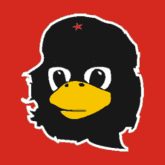Linux
Linux is a UNIX-like kernel written by Linus Torvalds in the early 1990s. Originally intended to a hobby project, version 0.1 was released on the comp.os.minix newsgroup on August 25, 1991. In 1992, The kernel was released under version 2 of the GPL, which requires anyone distributing a modified version of it to make the source code available, freely usable, and freely modifiable. Due to said licensing, the GNU project had adopted the kernel and titled it GNU/Linux with the penultimate goal of creating a fully free UNIX replacement. Version 1.0 of the kernel was ready in 1994, and the upstream is still being updated constantly as of 2020. The Linux kernel is the foundation for Android, the most popular mobile operating system in the world. Linux has gained extensive penetration into the server market, where it is particularly popular as the basis for web servers. These computers do much of the heavy lifting for services like Facebook and Google. Linux is also used extensively in scientific computing, and is the most dominant supercomputer kernel, with all of the top 500 supercomputers running different variants Linux as of 2017.[1]

Popularity
Linux is popular among computer enthusiasts and programmers, but because few manufacturers bundle Linux with their computers, it has not achieved more than two percent penetration into the desktop market share. Microsoft uses its monopoly power to threaten manufacturers with higher prices if they ship any PCs with Linux pre-installed; however, with the introduction of so-called netbooks (e.g. small, cheap computers – "SCC") by many manufacturers, Linux briefly found a new niche in the computer market which could not be catered to by Windows XP, given the latter's insistence on confusing, contradictory user experiences (i.e. the Start Screen) nobody asked for and greatly increased system requirements. In fact, Linux was responsible for the prolonged life of Windows XP, after Microsoft belatedly realized the threat to its monopoly position posed by Linux.[citation needed] In the years since, Linux has soldiered on. It may have a minuscule 1-2% desktop install base, but its presence on Internet servers is extensive. In mainframes and embedded systems, it has a sizable marketshare, but not a majority.
Linux is only the kernel for different userlands, and by itself does not contain a user interface (UI). This, along with other useful software, is bundled together with the kernel in a "Linux distribution", and their look and feel can be quite different depending on which UI they include. Due to the lack of online activation, the popularity of distributions is difficult to determine. Most sources agree that either Ubuntu, Linux Mint, and more recently, Manjaro (a fork of Debian, Ubuntu and Arch Linux respectively) are the most popular.[2]
Lawsuits
In 2003, the SCO Group, which licensed Unix systems on behalf of Novell, filed infringement lawsuits against IBM, Daimler-Chrysler, Red Hat, and Autozone for using Linux (Red Hat has its own distribution of Linux), which they asserted was derived from intellectual property they claimed to have created. They also piqued the interest of the Linux community at large by asserting a $699 fee for every installed copy of Linux, anywhere. Five years later the SCO Group filed for bankruptcy, impoverished by their own legal fees pursuing the litigation and defending against counter-claims.[3] SCO's assertions were rendered moot by a judgment that the intellectual property was in fact held by Novell all along[4] and SCO has breached the Asset Purchase Agreement (APA) of UNIX. Novell, which has its own Linux distribution, openSUSE, does not share SCO's beliefs.[5]
Novell in turn wants whatever remains of the $24 million Microsoft paid SCO to run the whole scam, which was nothing more than a campaign to create "Fear, Uncertainty, and Doubt" to discourage switching from Windows to Linux, while the Windows Vista rollout was delayed for years.
References
- https://www.zdnet.com/article/linux-totally-dominates-supercomputers/
- https://distrowatch.com/dwres.php?resource=popularity
- http://www.groklaw.net/staticpages/index.php?page=SCO-BK-timeline
- Now it is owned by British software
graveyardhouse Micro Focus which acquired Novell and its parent company Attachmate in 2014 - http://www.groklaw.net/staticpages/index.php?page=20040319041857760